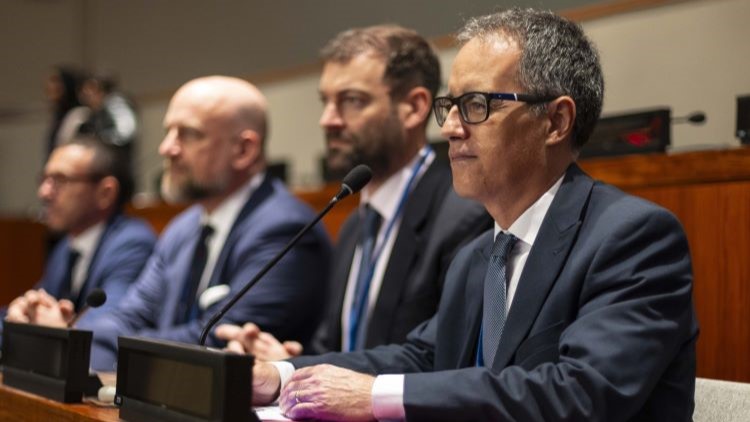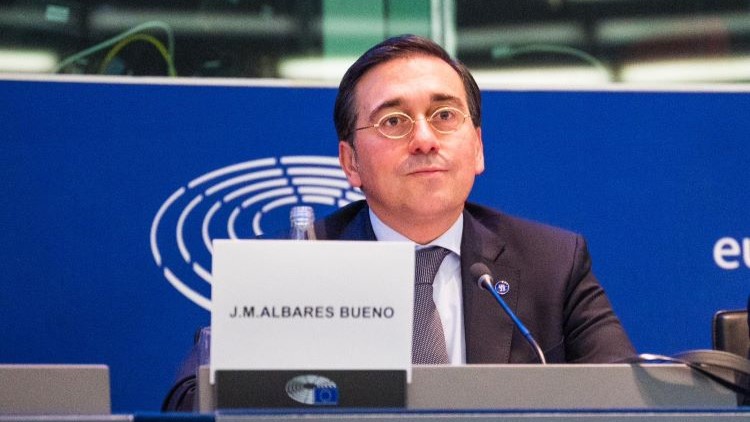Eduardo González
The deputy chief minister of Gibraltar, Joseph García, yesterday described Spain’s historic claim on the Rock as “frightening” but assured, before the UN decolonization commission, that his Government will continue to extend “the hands of friendship” to its ” neighbors” without “ever” renouncing their sovereignty.
García spoke these words during the last session of the Commission on Special Policy and Decolonization (the so-called Fourth Commission) of the 78th Session of the UN General Assembly, which concluded yesterday with a proposed resolution urging the Governments of Spain and the United Kingdom to reach a definitive solution and takes note, at the same time, of the desire of the United Kingdom to continue with the Trilateral Dialogue Forum and of Spain’s opinion according to which this forum has ceased to exist. and should be replaced by a new local cooperation mechanism in which the people of Campo de Gibraltar and Gibraltar are represented. Spain intervened before the Commission on October 2, but Gibraltar preferred to postpone its turn until the elections were held, in which the main minister, Fabián Picardo, was re-elected.
During his speech before the Fourth Committee, the also recently re-elected Joseph García called for the “democratic decolonization” of Gibraltar through the “right to self-determination” and described as “disappointing and unacceptable” the lack of progress in this regard in the within the UN. “We want to achieve a decolonized status, we want to be removed from your list of non-self-governing territories, and the administering power (the United Kingdom) has publicly said it supports us in working towards this goal,” he said.
“Our neighboring state, the Kingdom of Spain, has long asserted a territorial claim over our country,” he continued. “We reject that claim,” he insisted. “Spain seeks to redraw a European border to what it was before 1704. That is a frightening notion, it has huge implications that extend far beyond Gibraltar”, because “we are no longer in the 18th century and, today, people have rights and the wishes of the people must be paramount,” he declared.
However, he assured, “while we reject Spain’s territorial claim to our country, we extend also the hand of friendship to our neighbors.” “Gibraltar’s exit from the European Union has caused us to work together to solve shared challenges” because “we want to protect and enhance the economy of Gibraltar and that of the region around it,” said García.
According to the deputy chief minister, “Gibraltar exerts a positive economic impact on the neighboring area of Spain.” “There are fifteen thousand people who live in Spain and work in Gibraltar, most are citizens of the European Union and some nine thousand are Spanish nationals,” he said. These data, he stated, make Gibraltar “the second largest employer for the southern region of Spain”. “We purchase some 1.5 billion dollars worth of goods and materials annually from Spanish companies. Gibraltarians spend over 100 million dollars a year on goods and services in Spain”, he added.
“There is a need to protect that economic interaction going forward and that is why, together with the United Kingdom, Gibraltar has been working on a Treaty to safeguard our relationship with the European Union and with Spain,” he continued. “We are fully committed to continuing that work after a new Spanish government has been formed following their own electoral process, but make no mistake: we will never surrender any part of our sovereignty,” he warned.
Spain claims the air and maritime space of Gibraltar
During her intervention on October 2, the deputy permanent representative of Spain to the UN, Ana Jiménez de la Hoz, defended the sovereignty of our country not only over the Rock, but also over the air and maritime space that surrounds Gibraltar, including the areas that the United Kingdom maintains “illegally” occupied and that it currently uses to develop “as a military power against the doctrine of the United Nations.”
According to Jiménez de la Hoz, during the Treaty of Utrecht of 1713, Spain only ceded to the United Kingdom, “without any territorial jurisdiction, the castle of Gibraltar, along with its port, defenses and fortress,” but “the United Kingdom expelled the inhabitants originating from the square and, over time, it extended the occupied spaces through deeds and without valid legal title.”
At the beginning of the 19th century, she continued, London “extended the controlled space towards the isthmus, using several epidemics as an excuse to install civil and military camps,” but, “once the emergency was overcome, they became permanent despite the repeated and constant Spanish protests.” ”. Added to this is the installation of a fence on the isthmus in 1909, “even expanding the illegally occupied areas,” she said.
“In 1934, the British built a runway for emergency landings south of La Verja which, in 1938, coinciding with the Spanish Civil War, they expanded, turning it into a military airfield that extended more than half a kilometer into Spanish waters,” she recalled. Jiménez de la Hoz. “The United Kingdom thus occupied Spanish land, sea and air,” when “neither the waters, except those inside the port, nor the underlying airspace” belong to it. Therefore, she warned, “Spain continues to exercise its sovereignty given that they are Spanish waters and Spanish airspace.” The representative of the United Kingdom refuted the Spanish accusations and assured that, according to international law, territorial waters arise from sovereignty over land.







